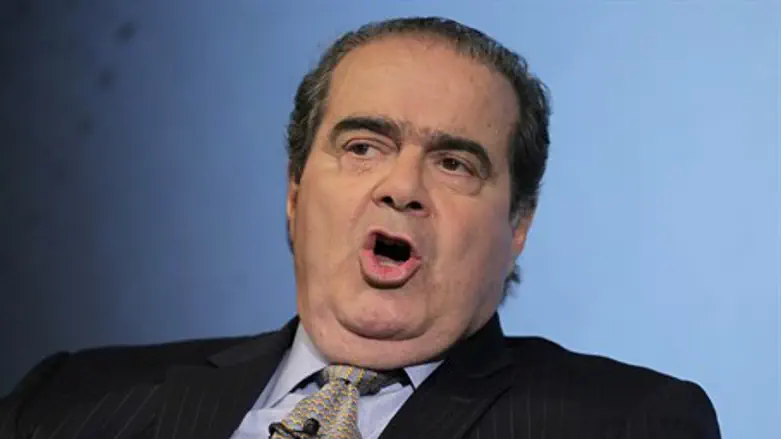
US Supreme Court Justice Antonin Scalia, who passed away on Feb. 13 at the age of 79, is being remembered fondly by Chabad rabbis as a defender champion of freedom of religious expression with a deep appreciation for Jewish law, who also participated in numerous legal symposia on Jewish and American jurisprudence over the years.
One of condolers is the famed Rabbi Adin Even-Israel (Steinsaltz), who was quoted on the Chabad.org website as saying that “in our conversations, I understood something about his brilliance and his efforts to get to a permanent understanding of law.
“In his death, America has lost one of its most prominent figures,” the rabbi said. “He was very straightforward and very courageous, pleasant, without losing his core. With all the brilliance of his mind, he was, in truth, a believing person and a good man.”
Scalia once told legal scholar and attorney Nathan Lewin, “When there was no Jewish justice on the Supreme Court, I considered myself the Jewish justice,” according to the report on Chabad.org.
Lewin was a friend and classmate of Scalia’s at Harvard Law School. He had argued a number of cases before the Supreme Court, including County of Allegheny v. ACLU in 1989, when Scalia was part of the majority in a landmark ruling that a menorah erected by Chabad-Lubavitch emissaries could stand on public property.
Lewin said that, after Scalia’s appointment by President Ronald Reagan in 1986, the new Justice saw himself as “the guardian of the Jewish heritage within the Supreme Court” since no Jewish justice sat on the court between the resignation of Justice Abe Fortas in 1969 and the 1993 appointment of Ruth Bader Ginsburg by President Bill Clinton.
Lewin said Scalia's “admiration for Jews and Jewish learning explains the frequent references in his opinions to the Talmud and other Jewish sources, and the significant number of Orthodox Jewish law clerks he hired.”
Scalia spoke loudly to honor Shabbat
In his first public participation in a formal symposium on Jewish and constitutional law, Scalia was a panelist and keynote speaker in 1995 at the National Conference on Jewish and Contemporary Law in Los Angeles, attended by some 500 judges, attorneys, law professors and rabbis.
He began the main session with a story of the Baal Shem Tov, the founder of the Chassidic movement, recalled event organizer Rabbi Dovid Eliezrie, director of the North County Chabad Center in Southern California. “He arrived with a profound sense of inquiry and came to understand the unique dynamics of Jewish law. It was rooted in his deep sense of intellectual curiosity,” said Eliezrie.
Rabbi Nachman Levine, an academic and educator who attended the symposium, recalled that Scalia was “very funny” and that he made it a point to speak in a booming baritone so that everyone could hear him during Shabbat, when there were no microphones.
Levine recalled that much of the discussion centered around the Talmudic story of the Oven of Akhnai, in which the sages determined that even though miracles and heavenly voices supported the opinion of one rabbi, the final law followed the rule of the majority.
“He was very clearly familiar with the story and how this Jewish legal principle of majority rule among expert judges—and not even Divine signs—serves as the foundation for Jewish jurisprudence,” said Levine, as quoted by Chabad.org.
In 2009, Scalia participated in a daylong conference of the Institute of American and Talmudic Law, held at Chabad Lubavitch of Midtown Manhattan and chaired by Lewin and the dean of the institute, Rabbi Shlomo Yaffe.
Scalia, who was married for 56 years and the father of nine children, was remembered by Lewin as a warm and engaging individual.
“He and his wife were guests in our sukkah,” recalls Lewin, “and he was kind enough to meet with law-school classes I brought to Washington to hear Supreme Court arguments.
Lewin said Scalia would readily accept recommendations to address Orthodox Jewish gatherings, such as colloquia run by Chabad; sessions and dinners with Agudath Israel of America; and a mass meeting at Yeshiva University, where he and Lewin discussed current issues of constitutional law and public policy.
Each event, said Lewin, was “thunderously successful.”